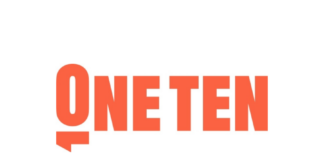
By Kim Henderson, Cobalt Compass Solutions
Most staffing organizations have embraced remote work in some capacity, but the tug of war between employees and companies intensifies as management embraces an onsite workforce. Several years into remote work, what have we learned, and does this model benefit everyone?
There are different pro and con arguments for remote/hybrid working. In order to make remote work a sustainable solution for staffing companies, several challenges need to be addressed. What do managers and employees need to do to make it successful for the long term?
Develop trust and rapport
Nothing can replace an in-person conversation. We develop rapport, trust, and relationships by connecting with others and absorbing their verbal and non-verbal cues. It is more challenging to do this on video. Further, when there is no real connection or trust between an employee and manager, it is harder to delegate tasks, work in teams, and accomplish business objectives. In addition, less trust and connection to an employer breeds workers that are flight risks. Managers and staffing employees must communicate consistently, be transparent, and work on resourceful solutions to build trust and loyalty.
Train and coach
In the hybrid model, many newer employees struggle to receive the needed coaching required to be successful in their role. We learn through hands-on experience and from mentors who can teach us on the spot. In addition to formalized training programs, consider establishing a mentor/mentee program in your staffing organization to foster a sense of community among workers and help individuals get the personalized attention they need. Further, sales and recruitment should proactively seek out training and guidance if they aren’t getting what they need to thrive.
Enhance teamwork
Remote workers may find it harder to achieve their work objectives and deliver results because they don’t have the face-to-face opportunity to cooperate and collaborate with team members. Video can make it harder to exchange information, make decisions, and solve problems.
Ultimately, this can impact the employee’s performance. It is crucial for managers to focus attention on communication and recognition within the team. Simple tactics like team building exercises and recognition programs can pay dividends to elevate team morale, foster partnerships, and solidify the group relationship. Conversely, sales and recruitment must also go the extra mile and make collaboration with team members a priority.
Increase visibility
The old adage “out of sight is out of mind” has credence in the workplace. How often in our staffing career have we been able to make an impact through a live interaction in a meeting with peers, customers, or upper management? Limited visibility of remote staffers can disconnect them from company culture and overall recognition. Eventually, this leads to them being minimized and overlooked for critical projects and promotions. The onus is on the manager and the employee to enlist creative ways to be noticeable and work effectively with all team members. Everyone has ownership in achieving visibility!
Adapt & think long-term
Staffing success is heavily predicated on accessibility, teamwork, and the ability to produce results. Ultimately, it is the duty of both the employee and the manager to spot areas of weakness and opportunities for improvement, and then set forth an action plan to get back on track. Both parties must be engaged and communicative. Many staffers are impactful as remote/hybrid workers, while others struggle due to lack of training, poor connection to the environment, or distractions. It is critical that managers and workers partner and recognize when the model isn’t working, which could necessitate a return to the office full time. The end goal is that managers and employees deliver results and thrive no matter what model is utilized.
 Kim leads Cobalt Compass Solutions, which provides consulting and training services for the staffing industry. Training programs encompass the full life cycle of sales and recruiting and teach the skills and strategies to create lasting customer relationships.
Kim leads Cobalt Compass Solutions, which provides consulting and training services for the staffing industry. Training programs encompass the full life cycle of sales and recruiting and teach the skills and strategies to create lasting customer relationships.
Prior Cobalt Compass, Kim had 28 years in the industry and served as a member of executive leadership at Hays PLC. As SVP of Client Services and Global Accounts, she was responsible for the development of international and strategic accounts and also established the Government Solutions business. Before joining Hays, Kim worked for Kforce where she served on the executive team and was responsible for the national sales strategy with execution across product lines.
Kim has a MBA from the University of Miami and a BS in Journalism from the University of Florida. Additionally, she has Project Management (PMP) and Six Sigma Lean certifications and contributes as a freelance writer for The Staffing Stream and SHRM.org blogs. Further, she has appeared on the Staffing Hub, Fidelis Leadership, and Ivy Podcasts as a guest.






